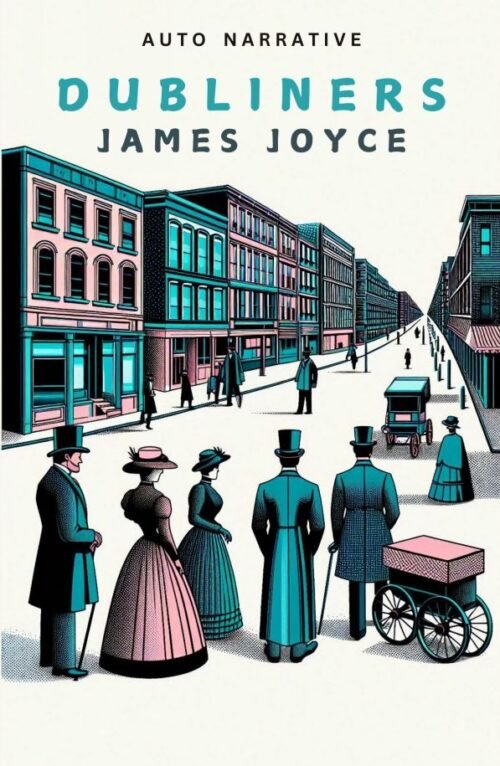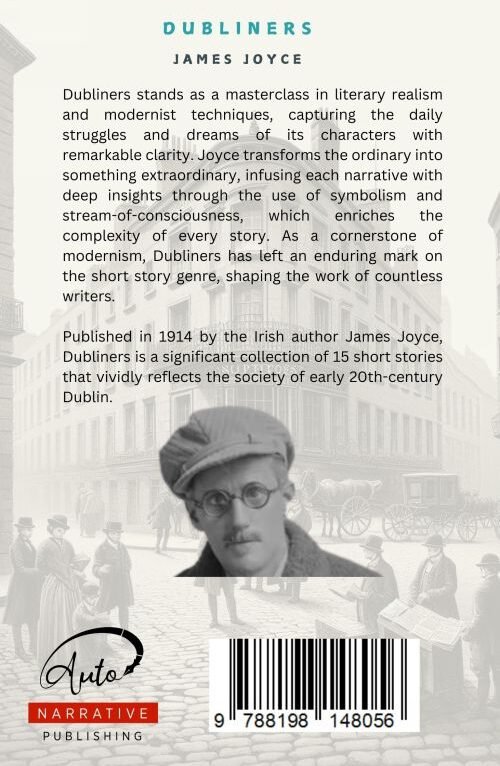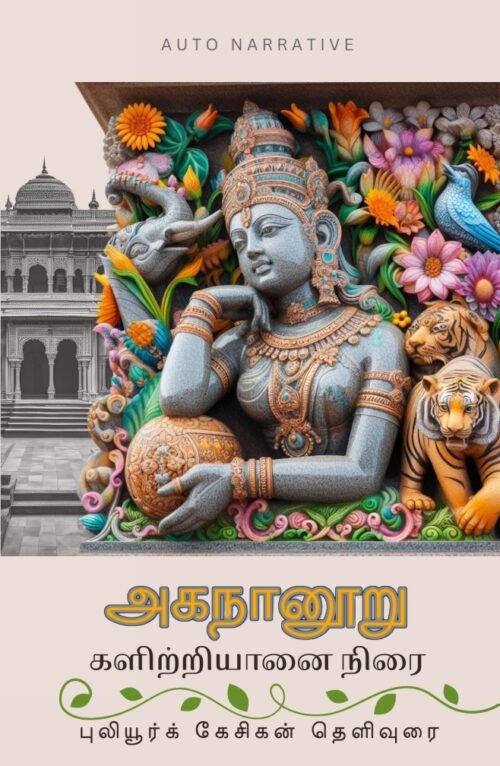-
(0 reviews)
கர்நாடக முரசும்...
₹150.00நான்–லீனியர் என்ற இந்த எழுத்துப் பாணி வாசிப்பதற்கு எளிதாகத் தோன்றினாலும் இதை இலக்கியப் பிரதியாக மாற்றுவது கிட்டத்தட்ட அசாத்தியமான ஒன்று. ஏனென்றால், இக்கதைகளுக்கான கச்சாப் பொருளை நான் குப்பையிலிருந்து எடுக்கிறேன். ரொலாந் பார்த் (Roland Barthes) இதை Literature of Trash என்று குறிப்பிடுகிறார். ஏற்கனவே தமிழ்ச் சமூக வெளியில் ஏராளமான குப்பை மலிந்து கிடக்கிறது. இங்கே சினிமாவுக்கு எழுதுபவரும் ஜனரஞ்சகப் பொழுதுபோக்குக் குப்பைகளை உற்பத்தி செய்பவர்களும்தான் எழுத்தாளராகக் கருதப்படுகிறார்கள். அப்படிப்பட்ட குப்பைக் கிடங்கிலிருந்து குப்பையைப் பொறுக்கி அதை எப்படி கலையாக மாற்றுவது? அந்த மாயாஜாலத்தைத்தான் என்னுடைய நான்–லீனியர் கதைகள் செய்தன.
-
-
(0 reviews)
கம்பன் சுயசரிதம்...
Original price was: ₹180.00.₹150.00Current price is: ₹150.00.கம்பராமாயணத்தைப் படிக்கப் படிக்க அதன் சுவை, நம் நாவில் மட்டுமல்ல, நம் உள்ளத்திலும் உணர்விலும் ஊறி நமக்கு உவகை ஊட்டுகிறது. கதையென்னமோ வால்மீகி முனிவர் தந்த கதைதான். ஆனால் அந்தக் கதையை அங்கங்கே, செதுக்கிச் சீராக்கி, தமிழ்ப் பண்பாட்டிற்கேற்ப, கம்பன் கொண்டு செல்கின்ற திறம், கம்பன் கவி நலம், கம்பன் பாத்திரப் படைப்புகள் இவையெல்லாம் நம்மை பிரமிப்பில் ஆழ்த்துகின்றன. அவன் பாடிச் சென்றுள்ள பன்னீராயிரம் பாடல்களையும் நாம் படித்து அனுபவிக்க அவகாசம் இருக்கிறதோ இல்லையோ, அப்படியெல்லாம் சிரமப்பட வேண்டாம் என்றே பி.ஜி. ஆச்சார்யா, முதுபெரும் புலவர் வெள்ளகால் சுப்பிரமணிய முதலியார், ரசிகமணி டிகேசி போன்றவர்கள், அந்தக் கம்பராமாயணத்திலிருந்து தெள்ளி எடுத்து, அவற்றைக் கம்ப சித்திரமாகவும், கம்பராமாயண சாரமாகவும், கம்பர் தரும் காட்சியாகவும் நமக்குத் தந்திருக்கிறார்கள்.
-
(0 reviews)
நீண்ட ஆயுளும்...
₹100.00பம்மல் சம்பந்த முதலியார் தமிழ் நாடக உலகில் மிக முக்கியமான ஒரு ஆளுமை. அவருக்குத் “தமிழ் நாடகத் தந்தை” என்ற பெருமை வழங்கப்பட்டிருப்பது அவருடைய பெரும் பங்களிப்பை எடுத்துக் காட்டுகிறது. தமிழ் நாடகங்களை முதன்முதலாக உரைநடையில் எழுதியவர் அவர். வழக்கறிஞர், நீதியரசர், நாடகாசிரியர், மேடை நாடக நடிகர், எழுத்தாளர், நாடக இயக்குனர் ஆகிய பல்வேறு பரிமாணங்களைக் கொண்டிருந்தார். அவரது படைப்புகள் மற்றும் செயல்பாடுகள் தமிழ் இலக்கியத்தையும், மேடை நாடகக் கலையையும் மிகவும் செழுமையாக்கியவை. இந்த நூலில், பம்மல் சம்பந்த முதலியார் தனது அனுபவங்களின் அடிப்படையில் ஆரோக்கியம் மற்றும் நீண்ட ஆயுள் குறித்து முக்கியமான கருத்துகளை பகிர்ந்துள்ளார். நம் காலத்தில் புதிய உணவு பழக்கங்களும், வேறுபட்ட பணிச் சூழல்களும் மேலோங்கியுள்ள நிலையில், 84வது வயதில் அவர் வழங்கிய ஆரோக்கியக் கருத்துகள் இன்னும் பிரசక్తமானவை. அவரது வார்த்தைகள், நம் வாழ்க்கையை சீர்செய்து ஆரோக்கியமான வழிமுறைகளைப் பின்பற்ற உதவும் வழிகாட்டியாக இருக்கும்.
-
(0 reviews)
Dubliners
Original price was: ₹250.00.₹200.00Current price is: ₹200.00.Dubliners has been widely acclaimed by critics and scholars since its publication in 1914, earning its place as a cornerstone of modernist literature. Here are some notable perspectives:
- T.S. Eliot praised Joyce’s work for its precision and depth, describing Dubliners as “a series of vivid, unforgettable episodes” that showcase Joyce’s mastery of realism and subtle symbolism.
- Virginia Woolf acknowledged the innovative quality of Joyce’s writing, noting his ability to delve into the inner consciousness of his characters and reflect the nuances of human emotion.
- F.R. Leavis, a prominent literary critic, emphasized Dubliners’ contribution to the modernist movement, calling it “a landmark in the development of the short story” for its unflinching portrayal of human frailty and moral paralysis.
- Contemporary reviewers often highlight Dubliners as an enduring classic. The New York Times describes it as “a profound exploration of the human condition,” while The Guardian calls it “a masterful work of subtle complexity that captures the soul of Dublin and its people.”
These reviews underscore Dubliners’ significance as a literary work that transcends its time, resonating with readers across generations for its emotional depth and storytelling brilliance.
-
(0 reviews)
The Gambler
₹200.00The Gambler follows the gripping journey of Alexei Ivanovich, a young tutor entangled in a web of obsession, desire, and self-destruction. Set against the backdrop of a European spa town, Alexei finds himself drawn into the feverish world of roulette, where each spin fuels his addictive thrill and desperate hope for wealth. As he becomes entrapped in the dark allure of gambling, his tumultuous love for Polina, a woman as elusive as his fortunes, pushes him to the brink. Dostoevsky’s masterful exploration of human weakness and compulsion makes this novel an unforgettable portrayal of risk, passion, and fate.
Fyodor Dostoevsky, the author of The Gambler, is one of Russia’s most influential literary figures and a pioneer of psychological realism. Born in 1821 in Moscow, Dostoevsky’s life was marked by hardship, including imprisonment in Siberia, financial struggles, and an ongoing battle with epilepsy and gambling addiction. These personal experiences deeply influenced his writing, allowing him to explore complex themes of human suffering, morality, and inner turmoil with unparalleled insight. Known for his philosophical depth and character-driven narratives, Dostoevsky’s works, including Crime and Punishment, The Brothers Karamazov, and Notes from Underground, delve into the darkest recesses of the human psyche and moral dilemmas. The Gambler, a semi-autobiographical novel, reflects his own struggles with gambling, making it a powerful, introspective look at addiction and its psychological toll. Dostoevsky’s legacy endures as his work continues to resonate with readers, offering profound reflections on human nature and the existential questions of life.
-
(0 reviews)
தாய், Thai...
Original price was: ₹500.00.₹450.00Current price is: ₹450.00.1923ஆம் ஆண்டு திருநெல்வேலியில் பிறந்தார் தோ. முசி. ரகுநாதன். அவருடைய மூத்த சகோதரர் டி. எம். பாஸ்கர தொண்டமான், இந்திய அரசுப் பணியில் இருந்ததுடன் பிரபலமான எழுத்தாளராகவும் திகழ்ந்தார். ரகுநாதன், ஏ. ஸ்ரீநிவாச ராகவன் அவர்களின் மாணவராகவும் வழிகாட்டலையும் பெற்றார்.
1942ஆம் ஆண்டு இந்திய சுதந்திரப் போராட்டத்தில் பங்கேற்றதற்காக சிறைக்குக் செல்ல நேர்ந்தது. பின்னர், 1944ஆம் ஆண்டு தினமணி பத்திரிகையில் சில மாதங்கள் உதவி ஆசிரியராக பணியாற்றினார். 1946ஆம் ஆண்டு முல்லை இலக்கிய இதழில் சேர்ந்தார். 1945ஆம் ஆண்டு அவரது முதல் சிறுகதை நாவலான ‘புயல்’ வெளியானது.
1948ஆம் ஆண்டு வெளியான ‘இலக்கிய விமர்சனம்’ என்ற சிந்தனையாலோடு கூடிய விமர்சன நூல் அவரது முதல் முக்கியமான படைப்பாகும். அதன் பின்னர், 1951ஆம் ஆண்டு ‘பஞ்சும் பசியும்’ நாவலை எழுதினார். இந்த நாவல் செக் மொழிக்கு மொழிபெயர்க்கப்பட்டு, வெளியான சில வாரங்களில் 50,000 பிரதிகள் விற்கப்பட்டது.
தமில் எழுத்தாளர் புதுமைப்பித்தன் அவர்களின் நெருங்கிய நண்பராகவும் மற்றும் உறவினராகவும் இருந்தார் ரகுநாதன். 1948ஆம் ஆண்டு புதுமைப்பித்தன் மறைந்த பிறகு, அவரது பல நூல்களைத் திரட்டி வெளியிட்டார். 1951ஆம் ஆண்டு புதுமைப்பித்தன் வாழ்க்கை வரலாற்றை எழுதி வெளியிட்டார்.
1999ஆம் ஆண்டு, ரகுநாதன், ‘புதுமைப்பித்தன் கதைகள்: சில விமர்சனங்களும் விஷமங்களும்’ என்ற நூலை வெளியிட்டார். இது 1951ஆம் ஆண்டு வெளியான புதுமைப்பித்தன் வாழ்க்கை வரலாற்றின் தொடர்ச்சியாகவும், பி. ஜி. சுந்தரராஜன் போன்றவர்களால் புதுமைப்பித்தன் மீது கூறப்பட்ட நகலைப் பற்றிய குற்றச்சாட்டுகளுக்கு எதிராக எழுதிய ஆராய்ச்சிப் பாதுகாப்பாகவும் அமைந்தது.
தோ. முசி. ரகுநாதன், தமில் இலக்கியத்தின் ஒரு மாபெரும் பிரமுகராக மட்டுமல்ல, மறுமலர்ச்சிக்கான குரலாகவும் திகழ்ந்தார்.
-
(0 reviews)
சொன்னால் நம்பமாட்டீர்கள்,...
Original price was: ₹350.00.₹300.00Current price is: ₹300.00.பெரிய விஷயங்களை எளிய முறையில் நகைச்சுவையாகச் சொல்லும் திறன் படைத்தவர். சிறைச்சாலையில் கூட இவர் இருக்கும் இடம் கலகலப்பாக இருக்கும். சுதந்திரப் போராட்ட காலத்தில் இவர் மிகவும் ஆவேசமாகப் பேசுவார்; செயல்படுவார்.
தமிழ்ப்பண்ணை என்ற புத்தகப் பிரசுரம் மூலம் நல்ல நூல்களை வெளியிட்டிருக்கிறார். மிக அழகாக அதிகச் செலவில் – லாபம் கருதாமல் வெளியிட்டு அதற்கு ஒரு மகத்துவம் ஏற்படுத்தியிருக்கிறார். எனது பிரியமுள்ள சின்ன அண்ணாமலை அவர்களுக்கு எனது ஆசி
– சக்கரவர்த்தி இராசகோபாலாச்சாரி
-
(0 reviews)
மா பாரதம்...
₹250.00வடமொழியில் எழுதிய இராம காதையையும் மாபாரதத்தையும் தமிழ்ப்படுத்திய கம்பரும் வில்லிபுத்துராரும் அவற்றை வெறும் மொழிபெயர்ப்பு செய்யவில்லை. தமிழ் இன்பம் தோன்றும்படி அவற்றைத் தம் கவிதையாற்றலால் சுவைபடத் தந்துள்ளனர். அதனால் இப் படைப்புகள் மூல நூலில் உள்ள கதையும், தமிழ்க் கவிதையும் கலந்து மாபெரும் காப்பியங்களாகத் திகழ்கின்றன. இவையே இன்று மேடைகளிலும் அரங்குகளிலும் செவி நுகர் கனிகள் என்று பேசப்படுகின்றன.
வில்லி பாரதமும் பட்டி தொட்டிகளில் பாரதப் பிரசங்கங்களாகப் பேசப்பட்டது. இன்று உரை நூல்கள் வந்துவிடுவதால் இருந்த இடத்தில் இருந்து இந்நூல்களின் அருமை பெருமைகளை உணர வாய்ப்பு ஏற்பட்டு விட்டதால் பாரதப் பிரசங்கங்கள் குறைந்து விட்டன.
வில்லி பாரதம் இக் கதையினை ‘மாபாரதம்’ என்ற தமிழ்ப் பெயராலேயே அழைக்கிறது. மற்றும் வட மொழிப் பெயர்களைத் தமிழ்ப்படுத்தித் தந்துள்ளது. கர்ணன் என்பதைக் கன்னன் என்று வழங்குகிறது. பீஷ்மன் என்பதை வீடுமன் என்றே வழங்குகிறது. காரணம் வட சொற்களைத் தமிழில் சொல்லும்போது தமிழ் ஒசைபட அமைய வேண்டும் என்பது மொழியியல்பு. எனவே தமிழின்பம் தோன்றச் சந்த ஒசைபட எழுதப்பட்ட இந் நூல் பெரிதும் போற்றப்பட்டு வருகிறது.
-
(0 reviews)
அகநானூறு –...
Original price was: ₹280.00.₹250.00Current price is: ₹250.00.அகநானூறு பாடல்கள் மூன்று தொகுதிகளாகப் பிரிக்கப்பட்டுப் பதிப்பிடப்பட்டுள்ளன. முதல் 120 பாடல்களைக் களிற்றியானை நிரை, 121 முதல் 300 வரையிலான 180 பாடல்களை மணிமிடை பவளம், 301 முதல் 400 வரையிலான 100 பாடல்களை நித்திலக் கோவை எனப் பெயரிட்டுள்ளனர்.
ஆணும் பெண்ணும் காதலால் இணைந்து, தமக்குள் இன்பம் அனுபவித்து வாழ்வது அக வாழ்வாகும். இவ்வாறு, அவர்கள் தமது உள்ளத்திற்குள் நுகரும் உணர்வுகளை சித்தரிப்பவை அகநானூறு பாடல்கள். இந்தப் பாடல்கள் யானைக்களிறு போல் பெருமிதமுடன் நிறைந்தவை. யானைகளின் அணிவகுப்பை ஒத்திருக்கும் வகையில், ஓரினப் பாடல்களின் அணிவகுப்பாகே இவை அமைந்துள்ளன.
இவற்றை எளிதாகப் புரிந்து கொள்ளப் புலியூர்க் கேசிகன் அவர்களின் தெளிவுரை சேர்க்கப்பட்டுள்ளமை குறிப்பிடத்தக்கது.
Sign in














